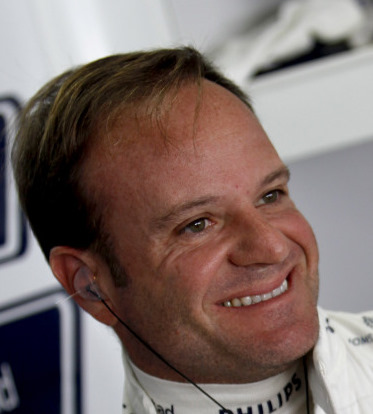The failed Barrichello experiment and what it means
 |
| Barrichello proved that F1 drivers are no better than IndyCar drivers |
The most experienced driver in the history of Formula 1 has been sent packing after just one mediocre year in IndyCar.
Instead of returning to dominate America's most prestigious open wheel series, Barrichello will spend next year driving in the Brazilian Stock Car Series. Yes, there is such a thing. I've seen their web site.
There are two big lessons to take away from the Barrichello story, and in a bizarre sort of way, they both bear wonderful tidings for every aspiring race car driver on the continent.
Lesson Number One – the car makes the driver, not the other way around.
Formula 1 snobs are fond of claiming superiority over American open wheel pilots. As evidence, they point to Michael Andretti's modest results in Europe compared to the success of Emerson Fittipaldi and Nigel Mansell in IndyCar.
The fact is that Fittipaldi and Mansell drove for Penske and Newman-Haas, two of the most successful race teams in IndyCar history. Their equipment was superior, their team personnel was superior and their budget was superior. They certainly drove well, but their success was predictable. Likewise, Andretti got about as much from his F1 experience as did those before and after him in similar circumstances.
 |
| Barrichello at Milwaukee |
The Barrichello experience gives us a raw and telling insight into professional auto racing. Rubens was a consistent frontrunner in F1 but was mid-pack at best in IndyCar. That doesn't make him less a driver. Conversely, it doesn't make Fittipaldi, Mansell, Vettel or Alonso any better than their American counterparts.
What it does tell us is simply this… Barrichello enjoyed a superior car and budget at Ferrari and performed accordingly. But when the major disparity between F1 cars is taken out of the equation and F1 drivers are in equal cars with everyone else, their performance is just what you'd expect. Mid-pack or so. There is no magical difference between European, South American and North American drivers.
As a race driver, you are no better than your car and your budget. The glory days when a driver could hoist a car upon his shoulders and carry it to victory are long gone. If you attempt to drive a racing car beyond its capacity in this era, you will punch a very large hole in a nearby concrete wall.
Within a few hundredths of a second, a car will do what a car will do and the driver's impact on that result is no greater than the engineer's or team manager's. This is truly a team sport.
Richard Petty learned this lesson ages ago. He never tried to be a better driver than everyone else. He tried to have a better car.
We all know how that turned out.
Lesson Number Two – If Rubens Freaking Barrichello needs money to get a ride, so do you.
If you are an aspiring race car driver and the only way you can get a ride is by bringing money… well… take a number. The line starts here.
Don't feel bad. It's not just you. It's everyone.
I'll be driving in four racing series this year. You know how many of my rides depend on bringing sponsorship deals to the team? Every last one of 'em.
It is downright amusing to hear the constant chatter from the racing media about the latest teen sensation as “fresh, new talent." What they really mean is “fresh, new money." Sure, the kid may be good, but you can find talented racing drivers in every corner of the globe. The real find wasn't the driver, it was the father's checkbook.
Don't get me wrong. Every father wants to give his kid a good start in life and I don't begrudge these people their chance.
The point is simply this – the most experienced driver in the history of Formula 1 just lost his ride because he couldn't bring sponsorship money to support it. And the flip side of that coin is… that means you can do it. That means this isn't magic and these guys aren't supermen.
The world is beginning to wake up to the fact that being “really good" doesn't get you a ride. Yes, talent is required, but there's more to the game than that. If you can raise the money and show some genuine ability and promise, you can get there, too.
Remember, Rubens had to do it, too. And that's good news for everyone.
Stephen Cox
